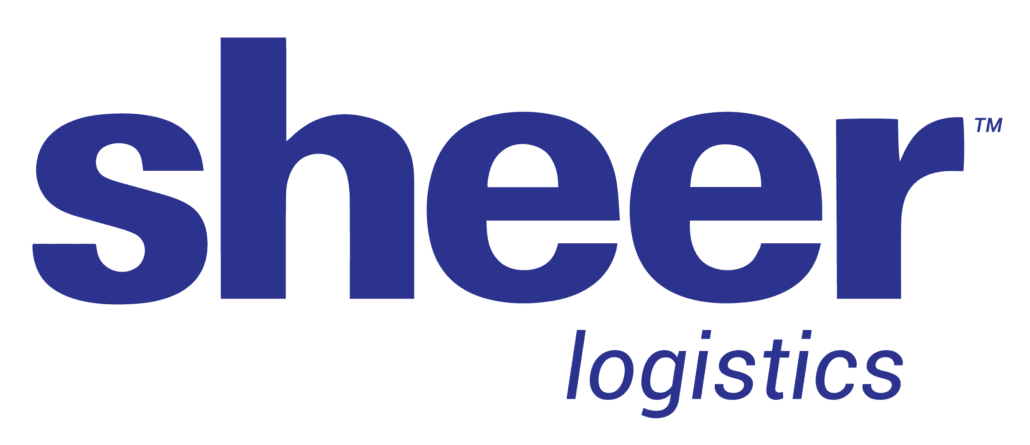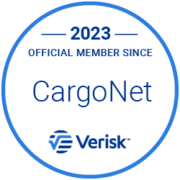
Managed Transportation Services refers to a strategic partnership between a shipper and a Logistics Service Provider (LSP) in which the LSP oversees the shipper’s transportation and logistics activities on an outsourced basis. The LSP manages as much, or as little, of the shipper’s transportation and logistics as the shipper desires. In fact, 90% of Fortune 500 companies use managed transportation services to enhance their logistics operations., But despite its widespread adoption by larger companies, managed transportation services, also known as Fourth-Party Logistics (4PL), remain misunderstood and under-utilized by mid-market companies.
In this blog I will explain how Managed Transportation Services work, the key benefits shippers can expect, share examples of a Managed Transportation partnership, and key considerations for implementing a Managed Transportation solution. Keep reading to learn more about managed transportation and why high-performance businesses across the country seek out these services.
Managed Transportation Definition
Managed transportation is the process of outsourcing your transportation and logistics processes to a third-party provider in order to optimize your supply chain. These providers leverage their industry expertise and modern transportation technology to streamline the transportation process, lower freight spend, and provide comprehensive transportation solutions.
How Managed Transportation Services Improve Your Supply Chain Operations
In transportation and logistics, speed, efficiency, and accuracy are critical components of a successful supply chain. However, it can be challenging to remain agile when managing your supply chain operations on your own. Finding a suitable carrier, establishing the optimal shipping routes, tracking shipments, and fielding customer service inquiries can quickly become overwhelming.
4PL Providers Create Long-Term Solutions for Your Supply Chain
You need access to experts to achieve the most streamlined, efficient supply chain network. Fourth-party logistics (4PL) providers are precisely that. Using a combination of industry expertise and cutting-edge transportation management systems (TMS), they help you manage every aspect of your supply chain operations, from carrier management and network design to freight analytics and reporting. By leveraging their expertise, you can maintain a highly visible, scalable, and efficient supply chain.
How Does Managed Transportation Work?
It’s easy to say that outsourcing your logistics operations to a third party can streamline or optimize your supply chain, but how do 4PL providers actually do that? Below, you’ll find four critical steps of the shipping process and see how managed transportation providers use their expertise to simplify supply chain management.
- Procurement – 4PL providers help you find the right trucking companies, or carriers, for your shipping needs. They assess carrier compliance, accessibility, and capacity requirements to connect you with reliable carriers that get the job done right. 4PL providers perform the RFP and bid response process for you, helping you find the most cost-effective shipping partner for your loads.
- Rate – After procuring bids for your shipments, your 4PL provider assesses carrier rates against established benchmarks and determines which is best for your shipping needs. Your 4PL provider ensures you get the best rates on every shipment, lowering overall transportation costs.
- Plan and execute – Next, your 4PL provider plans and executes your shipment. They determine which shipping mode is most effective for your shipment, whether that be dry van, refrigerated, LTL, or intermodal. If consolidation is required, your 4PL partner will provide the analysis and coordination required to execute. Your 4PL also establishes the most optimal shipping route for your load, avoiding costly routes, dangerous weather patterns, and other potential disruptions to the shipping process. After planning, your 4PL provider manages the execution of your shipment, ensuring your carrier is on track to deliver your shipment on time. They also address any issues relating to shipping overages, shortages, or damages.
- Settle – After your shipment arrives at its intended destination, your managed transportation provider assists you in settling the bill for the shipment, as well as managing fuel surcharges and other freight costs. In addition, your 4PL provider can manage freight claims and provide in-depth analytics to optimize shipments down the line.
Data-Driven Technological Solutions
At the end of the day, the logistics industry is driven by data. But the data that the supply chain generates can be hard to navigate without the proper tools or industry expertise. That’s why many 4PL providers implement a TMS solution into your network. TMS software creates a centralized communication channel between individual client, carrier, and vendor systems, and it makes sense of the wealth of data that is produced from your supply chain operations.
While your shipments are en route to their destinations, TMS software provides real-time tracking, allowing you to avoid unexpected disruptions and inform clients of any updates on their shipments.
TMS software also provides instant access to insights that allow you to make more strategic and informed business decisions. TMS software fills the gaps in your business intelligence by combining external sources of data from clients, carriers, and vendors with your internal processes. This allows you to mitigate discrepancies, manage your inventory more accurately, and keep operational costs down through increased efficiency.
The future of logistics lies in data and analytics. Want to learn more about how TMS software provides actionable insights that improve your supply chain operations?
Benefits of Managed Transportation Services
When you partner with a third-party logistics company for managed transportation services, you don’t just gain access to improved data analysis and better shipping routes—your day-to-day operations become more efficient, and you’re given the opportunity to spend more time innovating and focusing on core business processes.
Here are a few more ways that managed transportation services enhance your supply chain operations:
Risk Management
Every company aims to avoid delays, disruptions, and other logistics issues, but that can be hard when you’re trying to manage your logistics operations on your own. Managed transportation services from a 4PL provider reduce the risk of unexpected shipping and inventory problems affecting your bottom line. By managing carrier relationships, improving supply chain network design, and providing actionable data, 4PL providers help you address inefficiencies and avoid potential risks.
Cost Savings
Managed transportation services help you cut down transportation costs by choosing reliable carriers and avoiding costly shipping routes. In addition, the insight gleaned from their data analysis allows you to make informed, cost-effective decisions that set your business up for success down the line.
Simplify Your Day-to-Day Operations
As mentioned earlier, partnering with a managed transportation provider gives you the leeway to focus on critical business operations without becoming bogged down by the complexities of your supply chain. Instead, you can focus on improving your product, providing employee training, or communicating with clients.
Improved Visibility
One of the most significant benefits of managed transportation is that you gain insight into the whole of your supply chain operations. From top to bottom, loading dock to last mile, you have the ability to see how your supply chain operates throughout the entirety of the process.
Examples of Managed Transportation Solutions
Let’s take a look at some real-world examples of how shippers can benefit from a Managed Transportation partnership.
- Protein Processor: Sheer’s client, a fast-growing beef processor, was experiencing unexpected sales increases but lacked the carrier network, technology infrastructure, and executional resources to capitalize on the sales surge. The client had an existing 3PL relationship, but their services and technology were inadequate for managing the client’s growing supply chain. Upon entering a Managed Transportation partnership with Sheer, Sheer integrated the client’s disparate systems and data with its proprietary integration middleware, SheerExchange. To manage the client’s growing transportation needs, Sheer brought new carriers into the client’s network and designed and implemented a cloud-based dock scheduling solution. As a result of these and other supply chain enhancements, the client realized savings of $2.1MM in the first two years of the partnership. The client also gained greater supply chain visibility and efficiencies and is better positioned to manage future growth.
- Specialty Materials Manufacturer: In this example, Sheer’s client, a global leader in specialty materials manufacturing, was experiencing challenges in managing its transportation network as well as maintaining their in-house TMS. The Sheer team began assisting the client with freight brokerage services to address the client’s immediate issues with carrier performance. Over time, the relationship evolved into a fully-fledged Managed Transportation Services partnership. Sheer leveraged SheerExchange to facilitate the implementation of the SheerTMS and to connect disparate systems, third-party tools, and supply chain partners. As a result of the Managed Transportation partnership, the client has achieved greater visibility, reduced costs, enhanced price certainty, and operational efficiencies.
- Pet Food Manufacturer: Sheer’s client, a leading producer of pet foods, was seeking a Managed Transportation provider to take over from their in-house logistics and technology team. As the client’s business grew at a steady annual clip of 20%, managing their transportation operations and logistics in-house was no longer a cost-effective solution. To address these logistics challenges, Sheer implemented the SheerTMS, facilitated by SheerExchange. The client opted to utilize Sheer’s carrier network for all outbound freight while retaining an incumbent carrier for inbound freight. Through this arrangement, the client is able to retain strategic control and decision-making with respect to carrier selection.
Key Considerations for Implementing Managed Transportation
- Define your goals: Before seeking out a Managed Transportation partner, it is critical that you define your goals and KPIs and achieve buy-in amongst all internal stakeholders.
- Evaluate the technology: When choosing a Managed Transportation partner, you must carefully assess the TMS and compare it to other available options. The ideal TMS will not only meet your current needs but will have the ability to scale and flex as your business needs change.
- Carrier management: Whether you manage your truckload and/or LTL carrier relationships or rely on your Managed Transportation partner to do so on your behalf, selecting carriers that align with your goals and objectives is a critical consideration.
- Data and Analytics: Your Managed Transportation provider should deliver enhanced visibility and analytics to help guide timely decision-making.
- Freight Audit and Payment: Your Managed Transportation partner should provide freight audit and payment services to ensure accuracy, compliance, and timely payment of carrier freight bills.
- Customer service and support: Look for a partner that will provide dedicated teams to support your business needs as well as “surge” resources should your needs change due to new customers, seasonality, or other factors.
Discover The Sheer Difference
Partnering with Sheer Logistics (a 4PL provider) is a great way to implement continuous improvement and drive supply chain optimization. As your managed transportation partner, we use our TMS software to provide you with meaningful supply chain analytics while also helping you manage carrier relationships, freight claims, and audits. Reach out today to learn more about how managed transportation can benefit your logistics operations.








